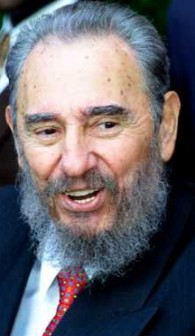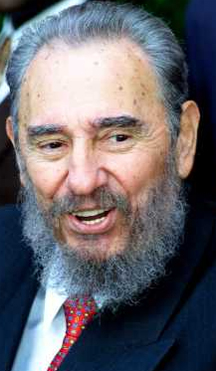HAVANA (Reuters) – Former Cuban leader Fidel Castro accused US President Barack Obama of speaking “gibberish” in his recent address to the United Nations and called NATO’s actions in Libya a “monstrous crime” yesterday in his first opinion column since early July.
Castro, 85, has been mostly out of sight the past few months, which combined with the absence of his usual steady flow of columns, had prompted rumours his health was worsening.
He wrote he was involved in work that occupied all his time and therefore he had not been writing what he calls his “reflections.” But he said he wanted to comment on the UN General Assembly in New York and in particular Obama‘s speech last week.

The reflection was published on Cuban government website www.cubadebate.cu.
Castro was his vintage self in his latest piece, blasting Obama and the United States, his ideological foes and favourite rhetorical targets, for what he views as bellicose and hypocritical behaviour. He called Obama the “Yankee president.”
Castro, who led Cuba for 49 years before health and age forced him to cede power to younger brother Raul Castro in 2008, quoted extensively from Obama’s General Assembly speech, inserting paragraphs of his opinions of the US leader’s words. “In spite of the shameful monopoly of the mass information media and the fascist methods of the United States and its allies to confuse and deceive world opinion, the resistance of the people grows, and that can be appreciated in the debates being produced in the United Nations,” he wrote.
Castro called into question many points in Obama’s speech, accusing him of misrepresenting the situations in Iraq and Afghanistan, US policy on Israel and Palestine and the uprisings this year in several Arab nations.
“Who understands this gibberish of the President of the United States in front of the General Assembly?” he asked.
He said the General Assembly presented political difficulties for many countries trying to decide the positions they should take on numerous issues.
“For example, what position to adopt about the genocide of NATO in Libya?” Castro wrote. “Does anyone wish it recorded that under their direction, the government of their country supported the monstrous crimes by the United States and its NATO allies?”
Castro did not describe the project that had taken him away from his column writing, but his allies President Hugo Chavez of Venezuela and Evo Morales of Bolivia said recently he was working on something to do with agriculture.

